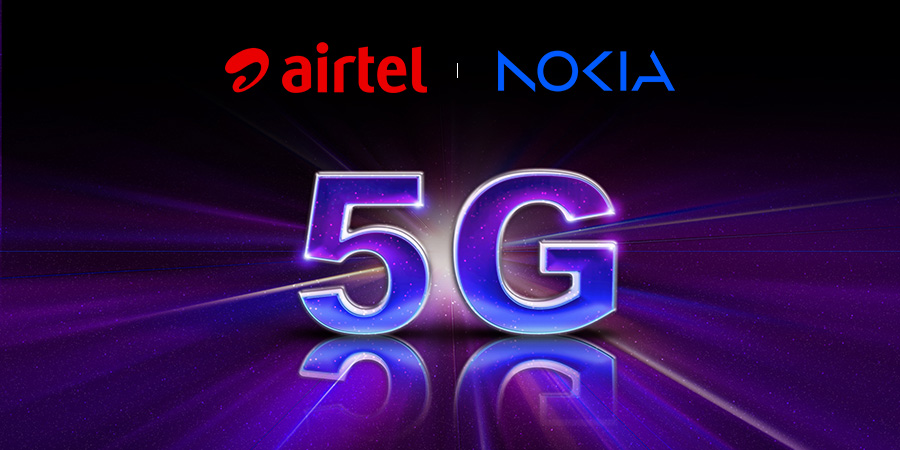Bharti Airtel and Nokia have announced a partnership aimed at launching “Green 5G,” an initiative designed to implement energy-efficient solutions within Airtel's mobile network.
This ambitious collaboration will enhance energy efficiency throughout Airtel's extensive 4G and 5G Radio Access Network (RAN) by utilizing cutting-edge technologies, including AI and machine learning (ML), along with a range of advanced software features and innovative solutions.
The initiative is expected to optimize energy consumption during both peak and off-peak hours, with projections indicating a reduction in Airtel's carbon emissions by approximately 143,413 metric tons of CO2 each year.
Randeep Sekhon, CTO, Bharti Airtel, said, “In response to the surging demand for data, mobile networks across India have rapidly expanded, particularly with the rollout of 5G technology. At Bharti Airtel, our commitment to sustainability has led us to collaborate with Nokia. This partnership allows us to leverage innovative solutions that deliver substantial energy savings, enabling us to significantly reduce our carbon footprint and further our environmental objectives in alignment with our business strategy.”
Tarun Chhabra, Head of Mobile Networks at Nokia India, expressed enthusiasm about partnering with Bharti Airtel to promote sustainable network practices in the country.
Industry News: Nokia, Bharti Airtel Achieve Major Milestone with Successful 5G Cloud RAN Trial
2040 Sustainability Goals
Chhabra mentioned that Nokia aims to achieve Net-Zero greenhouse gas (GHG) emissions globally by 2040 and highlighted that their innovative technologies would not only improve the performance of communications networks but also play a significant role in reducing energy consumption, thereby supporting the energy efficiency goals of their customers.
The collaboration between Bharti Airtel and Nokia encompasses several key initiatives aimed at improving energy efficiency in mobile networks. Together, the entities aim to achieve zero-traffic, zero-watt operation, which reduces the radio network's power consumption to minimal levels during periods of no traffic, thus, conserving energy and optimizing management. The partnership also combines Nokia's advanced energy-saving features with Airtel's AI and machine learning (ML) algorithms to automate and refine energy-saving software across their 4G and 5G radio resources.
Additionally, both companies have trialed advanced digital design tools to optimize cell configurations, resulting in lower transmitted power. This approach not only enhances the CO2 footprint and reduces energy bills but also maintains network performance and user experience, contributing to efficiency during both peak and off-peak hours.
Finally, the introduction of the latest ReefShark System-on-Chip (SoC) generation further enhances energy efficiency by adapting internal resources to meet actual processing needs and optimizing power consumption based on traffic load. This new platform generation is projected to deliver an additional 15% reduction in energy consumption.
Exclusive Interview: Pioneering Smart Cities and Sustainability in Asia
Airtel has established ambitious emissions reduction targets for its operations and is actively pursuing several initiatives to meet these commitments. Key measures include enhancing energy efficiency, utilizing open-access green energy, and adopting renewable energy solutions across its network. The company is also focusing on developing climate-resilient infrastructure, improving resource efficiency, and upgrading waste management practices.
Significantly, Airtel has installed solar-powered systems at approximately 25,000 sites to date and has notably increased the use of renewable energy in its data centers. In the fiscal year 2024, the company sourced 220,541 MWh of energy through green power wheeling agreements and captive solar rooftop plants.
In-Depth Analysis: Embracing Sustainability: Asia’s Efforts Towards Green Technology





